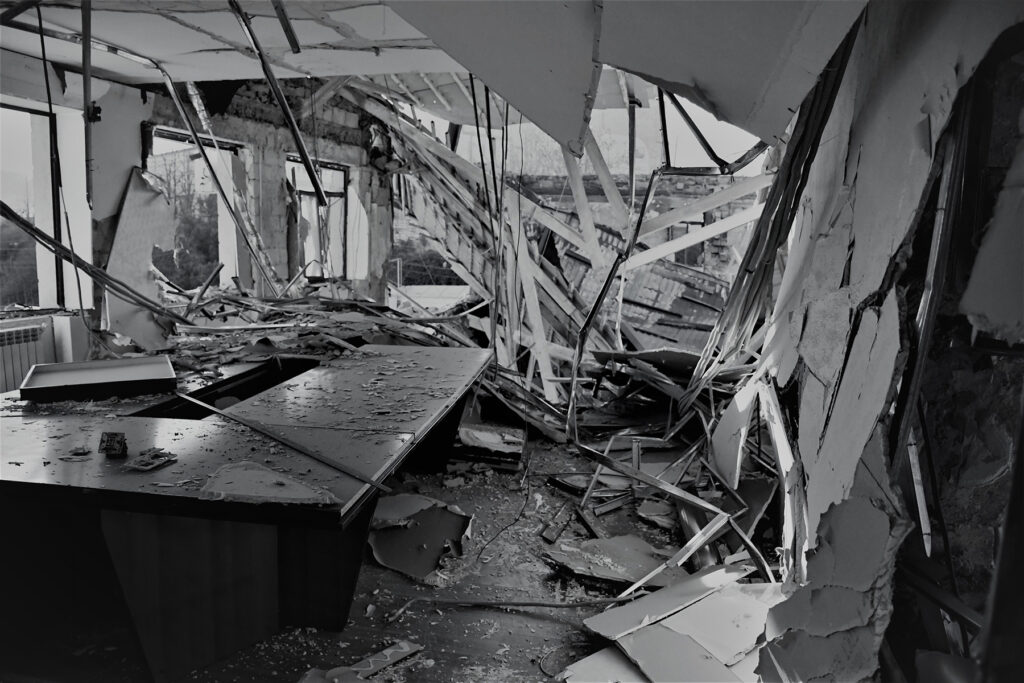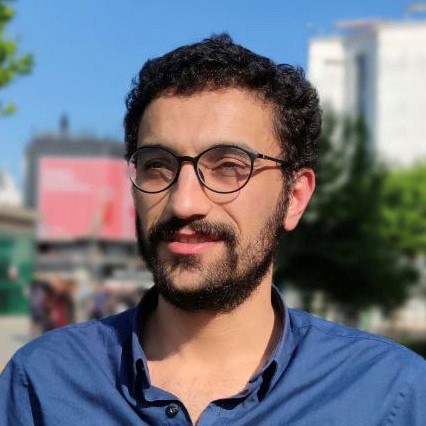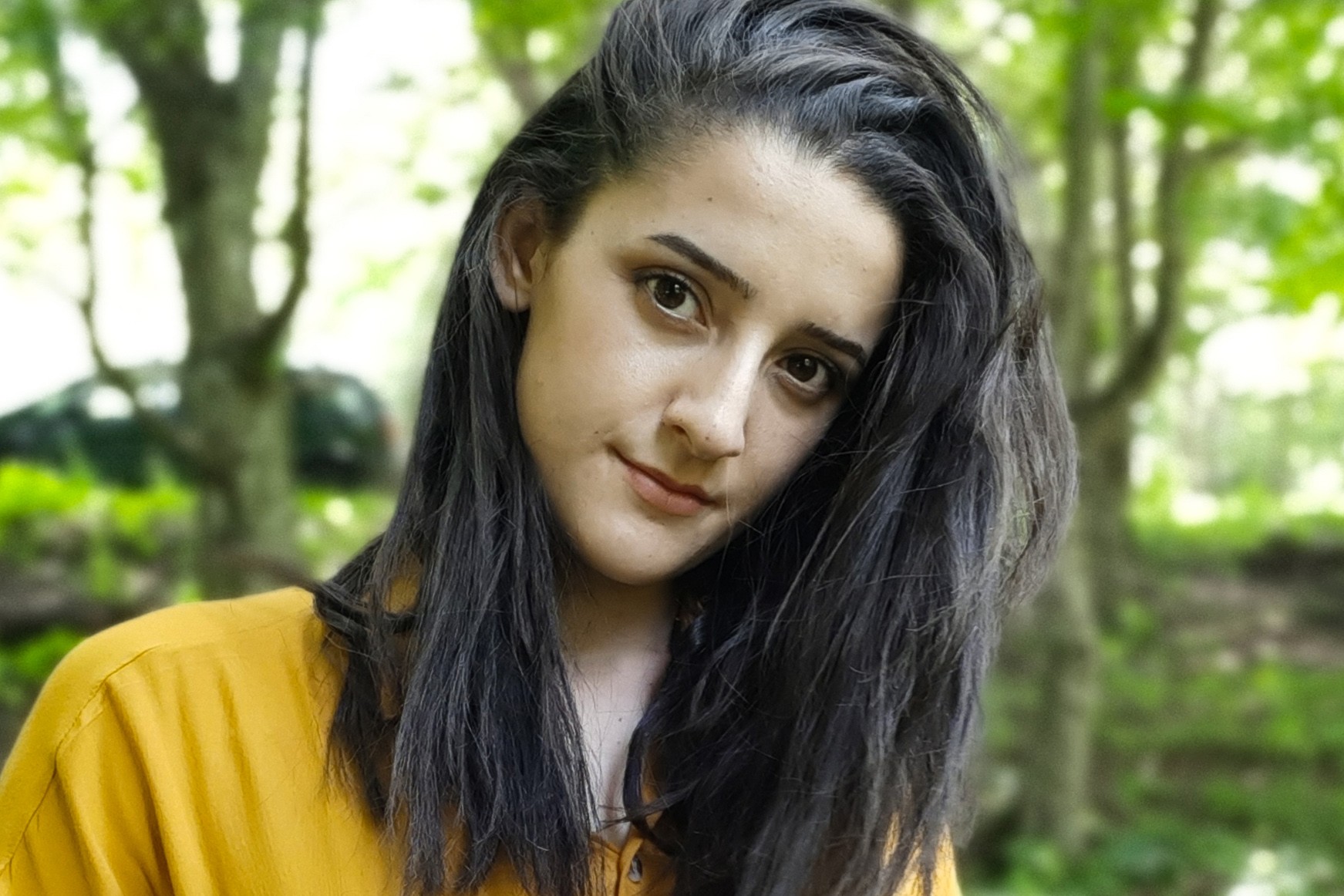OC Media Azerbaijan correspondent Ismi Aghayev and Armenia correspondent Ani Avetisyan give their personal reflections on the anniversary of the outbreak of the Second Nagorno-Karabakh War.
Ismi Aghayev: Victory’s bitter fruits
One year ago today Azerbaijanis, including me, learned about an escalation between Armenia and Azerbaijan — the biggest in nearly 30 years. A little later we call this ‘escalation’ by its new name ‘The Second Karabakh War’. It lasted for 44 days and ended as a tragedy for thousands on both sides.
Can people choose a war? It’s hard to say whether the people who lost loved ones or those who welcomed back veterans who had survived but irrevocably changed could reply affirmatively to this question.
It is hard to say whether each Azerbaijani separately, not when caught up in a whirlwind of mass nationalistic euphoria which we witnessed almost everywhere in Azerbaijan during the war, could firmly reply that they wanted the conflict to be resolved in such a violent and utterly inhumane way.
For so many, it was a war of ‘other people’, especially those who spoke up the loudest in favour of it. But those other people, who had to carry the burden of the euphoria, have slipped through the cracks. In the month of June alone, eight veterans of the war in Azerbaijan committed suicide after what they felt and saw during the war.
How could this happen?
When the war broke out, many were shocked and many even unaware of what was happening. This was to be expected. For nearly three decades, unsuccessful diplomacy, mostly hidden from the eyes of the Armenian and Azerbaijani public, continued to grind on — and war was only supposed to be the last resort.
But over these many years, the failures of diplomacy expressed themselves not only as fruitless foreign policy but also as a poison domestically.
The trauma of losing the First Nagorno-Karabakh War became a part of their national identity as Azerbaijanis and a card that could be, and was, played by the country’s leadership. This trauma and its uses and abuses left no space for any other position in Azerbaijani society than that of nationalism and militarism— anyone who believed anything different was simply a ‘traitor’.
This is why, amidst a growing economic and social crisis that had been exacerbated by the pandemic, war brought with it excitement and fantasy. The question of how life could be after the war opened the gates for imagining a vague but better future — something that would shake Azerbaijani society out of its stagnation.
But all exists in reality, and all fantasy must be brought down to earth. New territories meant new money needed for reconstruction, and the idea of the literal ‘price’ of victory now casts its shadow on Azerbaijan. We see its manifestation already.
In recent months, as the number of people with disabilities sharply increased because of the war, 7,000 people who previously received disability payments had their benefits cut under the pretence that their claims were ‘fraudulent’.
As the price of reconstruction of the war-won territories balloons, we should expect more of this to come.
The war has also normalised violence as a method of dispute resolution in the minds of many Azerbaijanis and has elevated domination to a virtue. And despite calling for peace out of one side of his mouth, President Ilham Aliyev militates with the other and calls for new conflicts, this time on the territories inside the Republic of Armenia which he declares need to be ‘returned’ to Azerbaijan.
This ultra-masculinity of the fist above all else has also invaded people’s personal lives. Incidents of femicide and domestic violence, already all too common in Azerbaijan, have only grown in number — as have homophobic attacks on members of the queer community.
Meanwhile, Azerbaijanis displaced from their homes in the First Nagorno-Karabakh War find themselves in much the same material situation as before. None have yet returned home, nor do they know when, or if, they will.
Yes, the war is over, for now. But so was the First Nagorno-Karabakh War, once.
Had not enough lives been lost in that first nightmarish war? Did another 7,000 have to be sent to die?
What is worse, is that if no lessons are learned, if endless conflict remains a tool for the powerful, then two wars might not be enough and many more lives will be lost.
But even when contemplating such dark things, I take solace that the wisdom of common people might prevail. There is a proverb in Azerbaijani, that I hope people will recall: ‘A close neighbour is better than a distant relative.’
Ani Avetisyan: The generation of war
Only a week ago, we were celebrating the 30th anniversary of Armenia’s Independence with a concert in tribute to those 4,000 who will never have the chance to attend a concert ever again.
That’s what we call ‘life going on’.
But if you start an ordinary conversation with the average Armenian, the possibility of them saying they feel like life has stopped and refuses to go on is very high. I am one of those Armenians. It also stopped wherever it was on 27 September, now it seems that no matter what happens, it refuses to budge.
We were supposed to be called the ‘generation of independence’.
I was born after the first war ended, when the country was gaining economic and social stability, and when all sides of the war had failed to ‘solve the conflict’. The government of Levon Ter-Petrosyan and his Azerbaijani counterparts had failed to achieve peace then. Every year since I was born, new administrations and leaders all kept failing to achieve peace. Instead, all my generation has known is thirty years of ‘relative peace’ and, ultimately, a war.
A common concern during the war was that the hardest period for Armenia would start as soon as it came to an end. There were few ‘victorious’ predictions for Armenia — it was only a question of the scale of the loss, both territorial and human.
We, the generation that was forced to bury some of our brightest, were transformed into a ‘generation of war’, and realised too that we never did fully understand how real independence felt.
But as painful and tragic as the result of the war was, it also was not the worst-case scenario, at least for some people. And with the war over, Armenia had to steel itself to face new trials. The country was on a knife’s edge. If the public believed the promises of the nationalists and old regime stalwarts, then the country may have well descended into military dictatorship, triggered a new escalation, or imploded into civil war.
But Armenia chose something else. The path the country chose maybe the slow death of sovereignty or security, but it wasn’t going back to the past.
Even if this new path appears to be slowly looping back.
Today, the Armenian government is very cautious about its wording when talking to Azerbaijan and Turkey, or saying anything they might care to hear. No longer would Nikol Pashinyan dare utter words like ‘Artsakh (Nagorno-Karabakh) is Armenia’, indeed he has refrained from stepping foot inside Nagorno-Karabakh since the war ended.
But his administration’s outwardly directed caution is equalled with recklessness towards its communication with the Armenian public. From ‘confirming’ that a group of POWs was returning home when there was an empty plane landing in Yerevan to the Deputy Speaker of Parliament urging parents of POWs to stop addressing their complaints to the government, but instead ask Azerbaijan to return them since ‘Armenia is not the one holding them captive’.
This recklessness does not only extend to topics pertaining to the war. Criticisms of the government are met with the stock statement that this is the ‘leadership the people voted for’ and that one should just suck it up and deal with it.
This attitude has now extended to the level of law enforcement. Armenia’s Police has become as violent as it has ever been since the revolution of 2018, and whether it is Pashinyan’s political opponents who protest, or simply neighbourhood residents who don’t want a high-rise to replace a park, they are met with the business end of a police truncheon.
Press freedoms have also not escaped unscathed. They have been endangered by new ‘insult’ laws that have in recent days made something as trivial as a mean comment directed at Nikol Pashinyan on Facebook a criminal offence.
Meanwhile, as the hard-won gains of 2018 are daily chipped away, oligarchs with pithy nicknames have returned to parliament. Nepotism has reared its ugly head. Pashinyan, once a ‘man of the people’ who criticised the ever-present portraits of his deposed predecessor, now stares down ceaselessly from public offices all over the country.
It is painful to see all of this. But, all that said, in those moments when I forget about the politics and the people involved in it, there is one moment that gives me hope.
Before the election this spring, tens of thousands of people gathered in the centre of Yerevan. These were rival rallies of politicians who hated each other with a fury, with participants who probably hated each other too — and yet — there were no clashes. The fistfights that now seem to be a regular occurrence in parliament are worse.
Maybe, this means we can go on. But it is not easy.
I have never heard the sound of shelling. I do not know how it feels when a rocket explodes next to me. But a year was not enough even for me, probably one of the ‘luckiest ones’ whose close family hardly suffered, to have a single sound night of sleep. I still find myself crying in the middle of the night with the images of lost loved ones in my head and with the fear of later losing others.
For ease of reading, we choose not to use qualifiers such as ‘de facto’, ‘unrecognised’, or ‘partially recognised’ when discussing institutions or political positions within Abkhazia, Nagorno-Karabakh, and South Ossetia. This does not imply a position on their status. The opinions expressed in this article are the authors' alone, and do not necessarily reflect the views of OC Media’s editorial board.




 27 September 2021
27 September 2021





